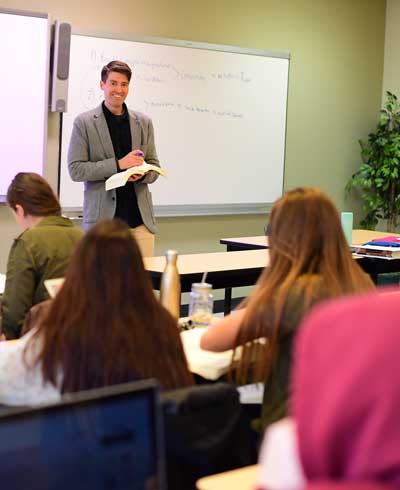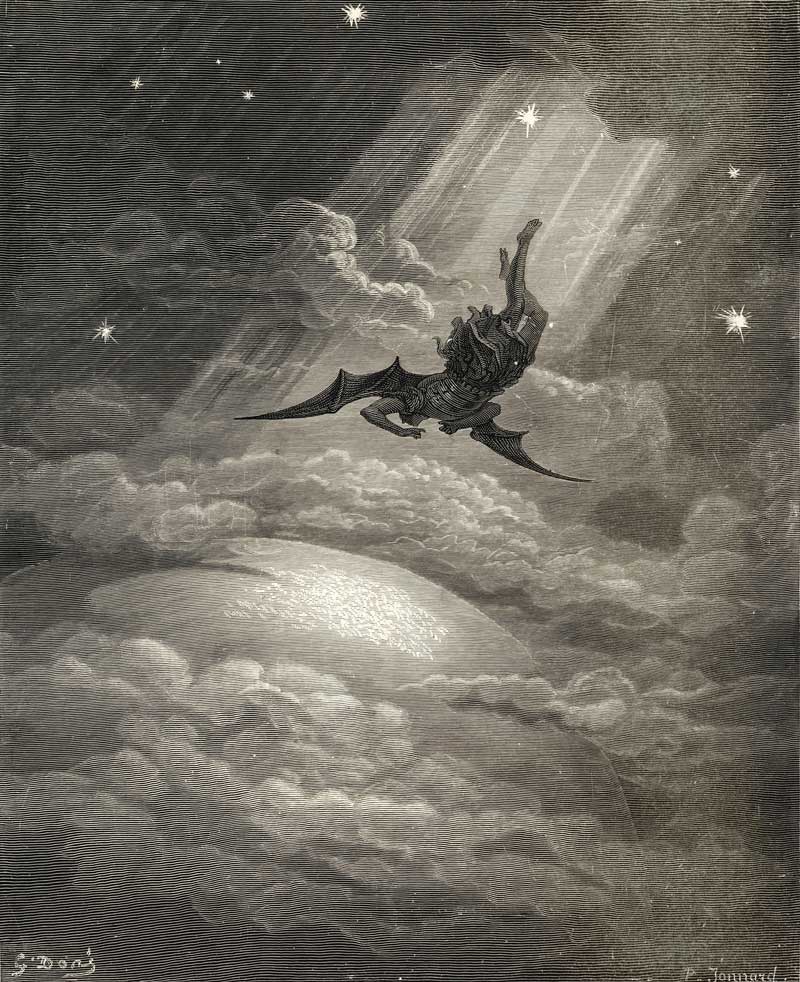Recently, I’ve been thinking about what it means to have hope. Does it mean holding onto the optimistic belief that history always marches towards progress and that life will basically work out for the best? Or does it mean living faithfully in the midst of darkness, acknowledging our uncertainty about the future while still holding alive the dream of a radical transformation that would begin to address the suffering of a broken world? A vast gulf separates these orientations, but both could meaningfully be called hope.
Quiet Desolation
I ask this question after spending several years thinking about the life and work of the 17th century poet, John Milton. Milton interests me because his life seems to exemplify a gradual shift from the first type of hope to the second.
In 1667, Milton published the first edition of Paradise Lost, his great epic rewriting of humanity’s tragic fall from grace in the Garden of Eden. When Milton started work on Paradise Lost, he was a man struggling with failure. In his youth, Milton had been one of England’s most optimistic reformers, a radical revolutionary who argued tirelessly for freedom.
Throughout his career he endorsed major church reforms, freedom of speech, divorce, a political revolution that aimed to upend monarchy and the execution of Charles I, all based on his belief that human beings were born free in God’s image. We deserve liberty, Milton argued. We should not be ruled by kings.
But by the time Milton started Paradise Lost, somewhere around his 50th birthday in 1658, there were many reasons for him to feel defeated. His first wife, Mary Powell, had died in 1652, after suffering complications from the birth of their fourth child, Deborah. In 1654, Milton went totally blind, an event interpreted by his political enemies as divine punishment for his defence of the king’s execution in 1649.
Worst of all, the political revolution Milton endorsed throughout the 1640s and '50s was on the verge of collapse. For 11 glorious years, England had been ruled by a parliament instead of by a monarch. But by 1660, the English people were looking to restore the king’s son, Charles II, to the throne—not because they were forced to do so, but by choice.
Milton imagined himself as a lone Jeremiah, an Old Testament prophet who responds to Israel’s faithlessness by crying out in despair to rocks and stones: “O earth, earth, earth,” Milton writes, echoing Jeremiah’s lament, may God raise some new citizens from “these stones, to become children of reviving liberty.” Milton in his darkest moments no longer believed that his fellow citizens were capable of true freedom.
If the young Milton sometimes believed that he knew exactly how to make a better world, then the Milton tempered by defeat is a little more humble.
Paradise Lost bears the marks of Milton’s crushing disappointment. The character in the poem who best represents what Milton had perhaps come to see as the dangers of reckless, self-deluding optimism is Satan, who after being thrown down to hell reassures his followers that they can overthrow God and “make a Heaven of Hell, a Hell of Heaven” (a defiant claim that Satan clearly doubts in his quieter moments). Satan’s sin-denying optimism stands in stark contrast to the end of the poem, which predicts the long, tragic story of human history after the fall.
Where Satan believes that he can make a heaven out of hell, Milton has the archangel Michael tell Adam the sorry story of human existence outside the garden: there will be war, disease, death, corruption, lies, hatred, failure—in short, one disaster after another. Life outside Eden may not be hell, but it is close. Michael’s story is made even more poignant by the way Milton describes Adam and Eve leaving Eden for the last time:
Some natural tears they dropped, but wiped them soon;The World was all before them, where to choose
Their place of rest, and Providence their guide:
They hand in hand with wandering steps and slow,
Through Eden took their solitary way.
Few poems have ended with such a quiet sense of desolation. Adam and Eve can never again return to their happy state of innocence; paradise has indeed been lost.
Joyful Self-Renewal
Many critics have argued that Milton’s turn to poetry represents a retreat from politics, his final resignation in the face of defeat. But Milton’s decision to write an epic after decades of political activism can also be read as a turn from naive optimism to a more profound hope that registers the full extent of human depravity. We see this shift most clearly in Paradise Regained (1671), the poem that Milton published immediately after Paradise Lost, just three years before he died.
There, Milton retells the New Testament story of Christ’s temptation in the desert, which mirrors mankind’s earlier temptation in the Garden of Eden. But now, rather than being tempted by the Tree of Knowledge, Milton’s Jesus is tempted by the ideals that once inspired Milton’s optimism: by politics, by philosophy, by the hope of improving this world with human effort. One by one, Jesus rejects Satan’s offers.
On the face of it, the implication seems to be that worldly institutions are too corrupt, too tainted by sin to bring about good. But this isn’t a simple turn away from politics. Instead, it represents Milton’s renewed awareness that real political regeneration requires deep, spiritual transformation. If the young Milton sometimes believed that he knew exactly how to make a better world, then the Milton tempered by defeat is a little more humble. Milton’s Jesus still starts a revolution, but he begins with an internal revolution, one that involves a process of personal, spiritual renewal that aims to cultivate, one person at a time, what Milton calls the “paradise within, happier far.”
Our motto at Booth University College is “Education for a Better World.” That is surely a noble goal. But it’s important to remember the lesson of Paradise Lost. If we think of education as an easily transferrable set of skills, a simple program for how to make the world a better place, then we risk falling into Satan’s mindset, the optimistic belief that we can make a heaven out of hell without changing ourselves.
 Real education, as Milton always knew, involves a rigorous discipline of spiritual transformation, a difficult and often painful process of self-examination, what Saint Paul calls the renewal of our minds. Such a renewal necessarily involves openness to hard questions, to uncertainty, to a soul-searching process that can make us feel profoundly unsure of ourselves. We can’t know beforehand where it will take us, or what changes we might have to make. But because this approach to education knows that a better world always begins with better people, it has the potential to create a much deeper sense of hope—one that is based not in ready-made answers but in the knowledge that, even in failure, even as we struggle to make sense of ourselves and the world around us, we are taking part in a long, arduous but ultimately joyful process of self-renewal that might actually help to make the world a better place, one person at a time.
Real education, as Milton always knew, involves a rigorous discipline of spiritual transformation, a difficult and often painful process of self-examination, what Saint Paul calls the renewal of our minds. Such a renewal necessarily involves openness to hard questions, to uncertainty, to a soul-searching process that can make us feel profoundly unsure of ourselves. We can’t know beforehand where it will take us, or what changes we might have to make. But because this approach to education knows that a better world always begins with better people, it has the potential to create a much deeper sense of hope—one that is based not in ready-made answers but in the knowledge that, even in failure, even as we struggle to make sense of ourselves and the world around us, we are taking part in a long, arduous but ultimately joyful process of self-renewal that might actually help to make the world a better place, one person at a time.
Jason Peters is an assistant professor of English at Booth University College in Winnipeg.
Reprinted from BoothUC Connect (Spring/Summer2018).
Feature illustration: © Archivist/stock.Adobe.com










Leave a Comment